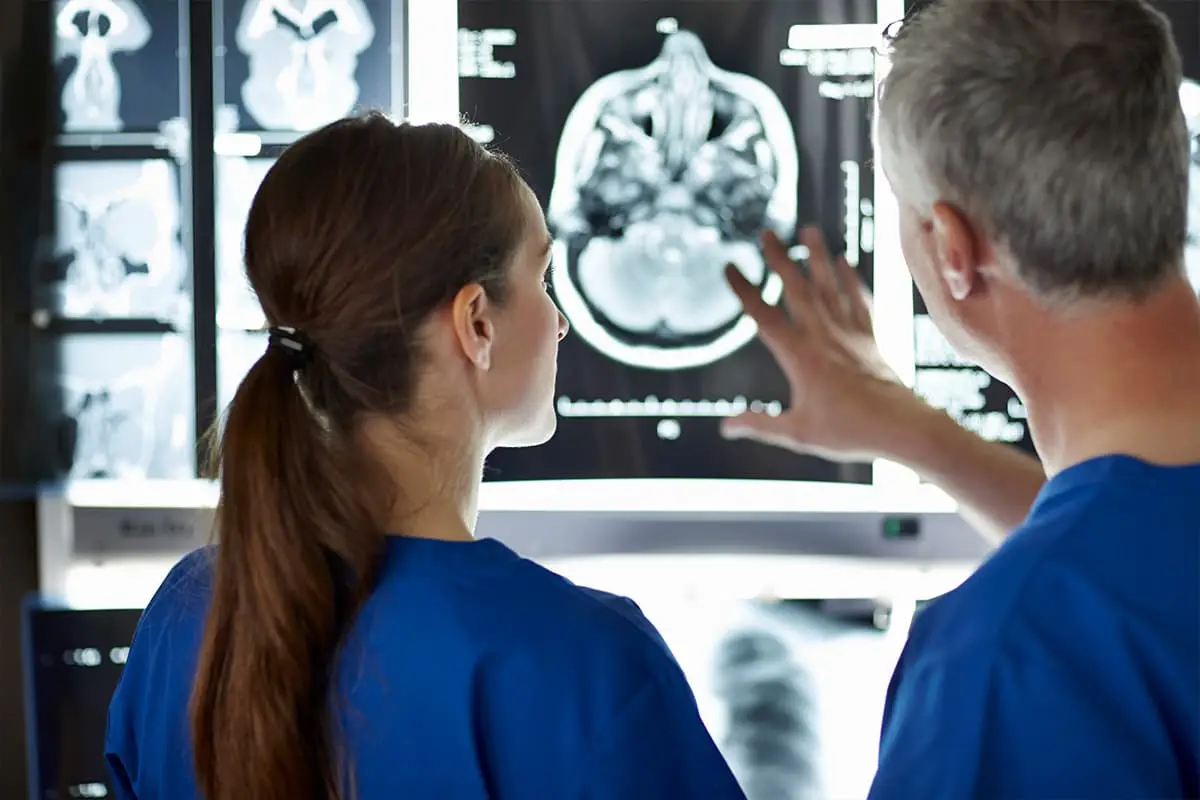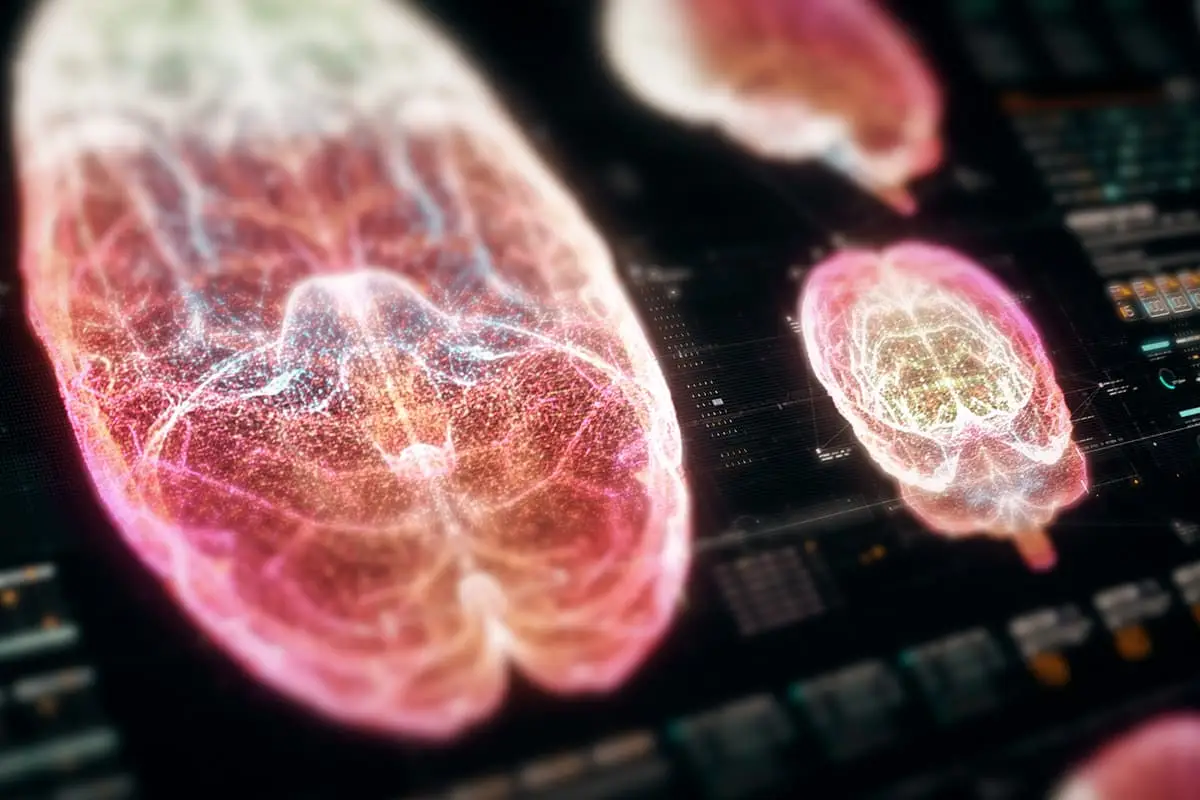We understand that mental health, psychology, and addiction treatment are constantly changing. For example, advances in neurology and brain imaging research show a link between psychological disorders and brain functioning—including the activity of neurons, neurotransmitters, and certain brain waves.
For this reason, VCAT Treatment Center follows a neuroscience, brain-based treatment approach to treat mental health and substance use disorders. This is in contrast to most traditional recovery centers that rely on outdated and ineffective diagnosis techniques and treatment modalities that lead to high relapse rates.
As one of the leading brain mapping and neuropathway therapy centers in California, we leverage state-of-art equipment/technology and unique brain-based treatment methodologies under the guidance of highly experienced healthcare professionals to restore healthy brain functioning.
Our goal is to give you the best chance at recovery and a more fulfilling life.

A healthy brain is the foundation of our well-being. But addiction and mental illnesses can interfere with the brain’s natural chemistry and activity.
Research shows that many psychological disorders, including addiction, are associated with discrepancies and malfunctioning in the brain’s activity—leading to cognitive distortion, functional changes to brain circuits, and other serious brain imbalances.
Therefore, our treatment approach is based on the idea that recovering your brain’s natural homeostasis is key to long-lasting recovery.
Our neuroscience brain-based approach optimizes brainwave patterns, increases cognitive abilities, influences the firing rate of neurons, and increases oxygenated blood flow through the brain.
Mental and cognitive stimulations such as our innovative Visual Concentration Attention Therapy (VCAT) and VCAT-NeuroStimulator Therapy can help encourage neuroplasticity—which refers to the brain’s ability to continuously adapt and rewire itself.
We help your brain learn how to regulate itself and correct areas dysregulated by a mental illness or substance use disorder—giving it the opportunity to return to a normative state.
Here at VCAT Treatment Center, we utilize proven neuroscience brain-based therapies to provide cognitive enhancement and help treat addiction and psychological disorders.
We use cutting-edge real-time brain mapping technology to develop an individualized and comprehensive treatment plan.
Whether you have a problematic history of mental health issues or it’s your first time seeking help for an addiction problem, our integrated neuroscience brain-based treatment program can work for you.
We give you the tools and information your need to get better and stay better.

Information and understanding are central to effective treatment and long-lasting recovery from psychological and substance use disorders.
One way we gather information is by taking an actual look inside your brain to identify problem areas that are dysregulated from the interferences caused by mental illness or drugs and alcohol.
The VCAT Treatment Center in California offers real-time qEEG assessments (brain mapping) to measure, record, and analyze the electrical activity within the brain. We are one of the industry leaders in brain mapping and qEEG-guided addiction and mental health treatment.
Quantitative electroencephalogram (qEEG) is central to our neuroscience brain-based mental health and substance use disorders treatment program. Our monitoring equipment are precise instruments that accurately capture quantitative patterns that may correspond to diagnostic information and/or cognitive deficits.
The non-invasive brain imaging technology painlessly and safely measures the relationship between the structure and function of the brain. Brain mapping can:
We use the advanced neurological information recorded to generate reports that are scrutinized by our highly qualified professionals. Accurate brain mapping allows us to formulate a comprehensive treatment plan for your mental health and substance use disorders. The report also gives us a baseline to track your progress over time.
Visual Concentration Attention Therapy (VCAT) is a non-invasive Visual Field brain stimulator and neuropathway therapy developed and researched by Dr. Nader Siahdohoni.
It is the most precise treatment for improving the symptoms of psychiatric/psychological and substance use disorders. The research-based neuropathway therapy is also an effective, safe, and quick way to improve overall cognitive and mental health.
The treatment is designed to improve brain functions by stimulating the brain’s circuitry (i.e., the connections of neurons-brain cells within the neural network). VCAT targets the brain’s malfunctioning areas (overactive, underactive, non-active) through neurocognitive stimulation within the Visual Field (VF).
And with the help of our state-of-the-art brain mapping technology, we can monitor your brain’s response and performance in real-time.
VCAT works by increasing oxygenated blood flow throughout the brain, enhancing the frequencies of brain waves, and encouraging the regulation, restoration, and healthy balance of neurotransmitters—which can impact the underlying cause of addiction, anxiety, depression, ADHD, and many other psychiatric disorders.
Think of VCAT as physical therapy—but for your brain cells (neurons).
VCAT neuropathway therapy enhances the brain’s plasticity by building stronger connections, communications, and functioning within your brain’s neural networks (neurogenesis). This is similar to how exercising on a regular basis enhances the growth and functioning of your muscles.
And the same way gym workouts target different muscle groups, we use VCAT to target specific areas of your brain depending on the presenting symptoms.
VCAT NeuroStimulator Therapy is making progress in the field of neuroscience and psychology as an effective, non-invasive treatment for Traumatic Brain Injuries (TBIs), substance and alcohol abuse disorders, co-occurring disorders, overall cognitive functioning, and psychiatric/psychological issues like ADHD, depression, and anxiety.
The VCAT-NeuroStimulator is basically a wearable, non-electric Neuro-Headset (helmet) that delivers a powerful triple-action treatment methodology that includes infrared light therapy, magnetic field therapy, and neuropathway therapy (VCAT).
The device helps us improve the brain’s functioning system by stimulating specific areas of the brain to enhance neural activities, manage inflammation/swelling, improve blood flow throughout the brain, reduce nerve damage, and promote recovery.
Here’s how the components of the VCAT NeuroStimulator work:
Infrared light (NIR) – High-powered near-infrared (NIR) electromagnetic energy penetrates the skull safely to reach dysregulated or damaged parts of the brain. It then helps promote recovery from long-term nerve damage by effectively accelerating regeneration.
Magnetic Field (TMS) – Transcranial Magnetic Stimulation (TMS) uses an external magnet to stimulate certain areas of the brain. A targeted pulsed magnetic field induced directly from magnetic coils in the neuro-headset helps strengthen underactive brain areas while reinforcing the brain’s neural network—leading to enhanced cognitive functioning and homeostasis.
Neuropathway (VCAT) Therapy – VCAT is a science-based neural pathway therapy that improves brain functioning and guides the brain to create new neural pathways and connections through the visual field. It enhances brain waves’ frequencies, helps balance/regulate neurotransmitters, and promotes oxygenated blood flow throughout the brain for optimal plasticity.
Mental health disorders and addiction are complex issues—and the most effective treatment plans for long-lasting recovery are usually those that tackle their varying root causes.
Our Neuroscience Brain-based treatment can be essential to a comprehensive, client-focused treatment plan. It’s non-invasive, the results are fairly fast, and the benefits tend to be long-lasting.
For more information on our Neuroscience Brain-Based Treatment Program give us a call today at (714) 714-0532
Copyright 2022 VCAT Treatment Center. Privacy Policy | Site Map